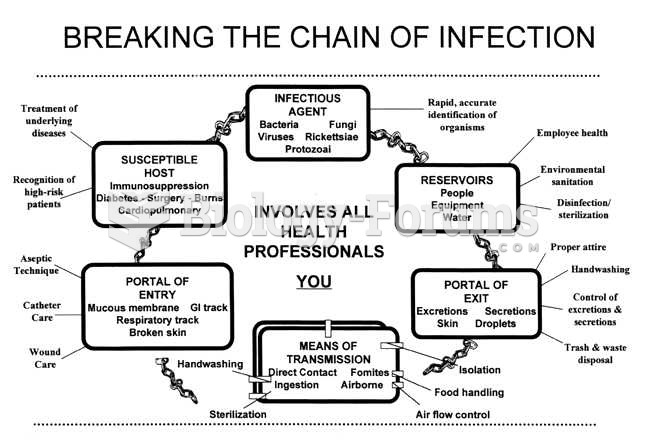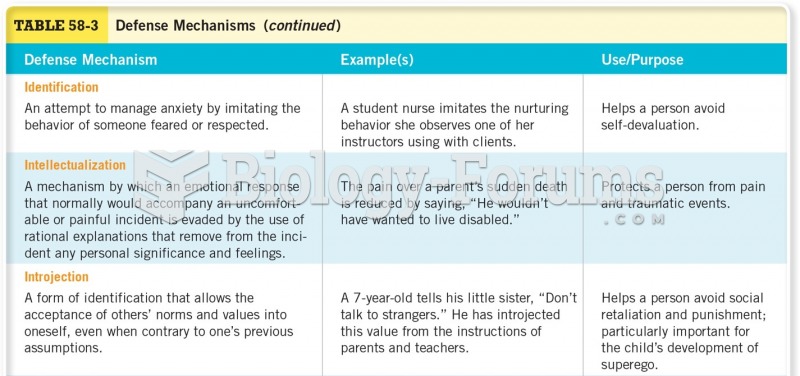|
|
|
A recent study has found that following a diet rich in berries may slow down the aging process of the brain. This diet apparently helps to keep dopamine levels much higher than are seen in normal individuals who do not eat berries as a regular part of their diet as they enter their later years.
The first documented use of surgical anesthesia in the United States was in Connecticut in 1844.
Pubic lice (crabs) are usually spread through sexual contact. You cannot catch them by using a public toilet.
Aspirin is the most widely used drug in the world. It has even been recognized as such by the Guinness Book of World Records.
Although puberty usually occurs in the early teenage years, the world's youngest parents were two Chinese children who had their first baby when they were 8 and 9 years of age.







